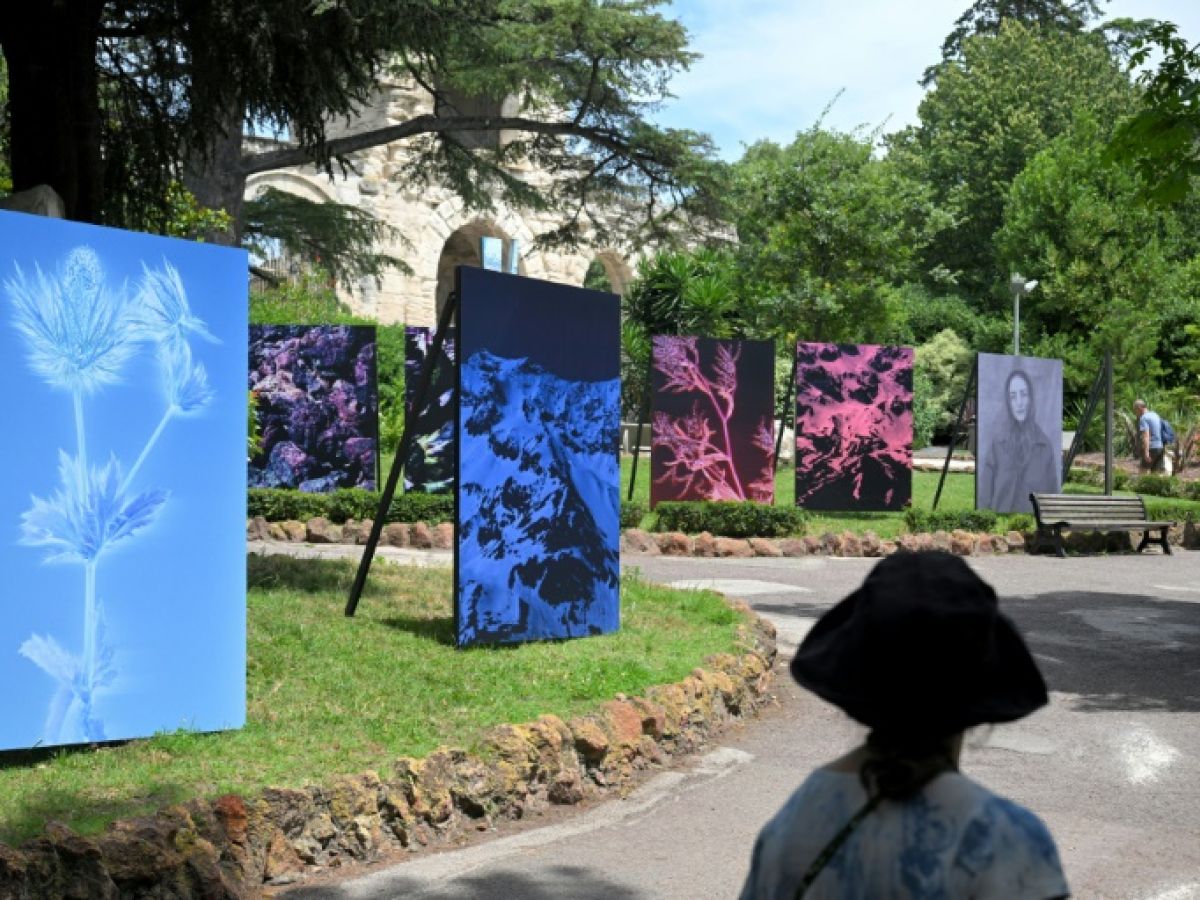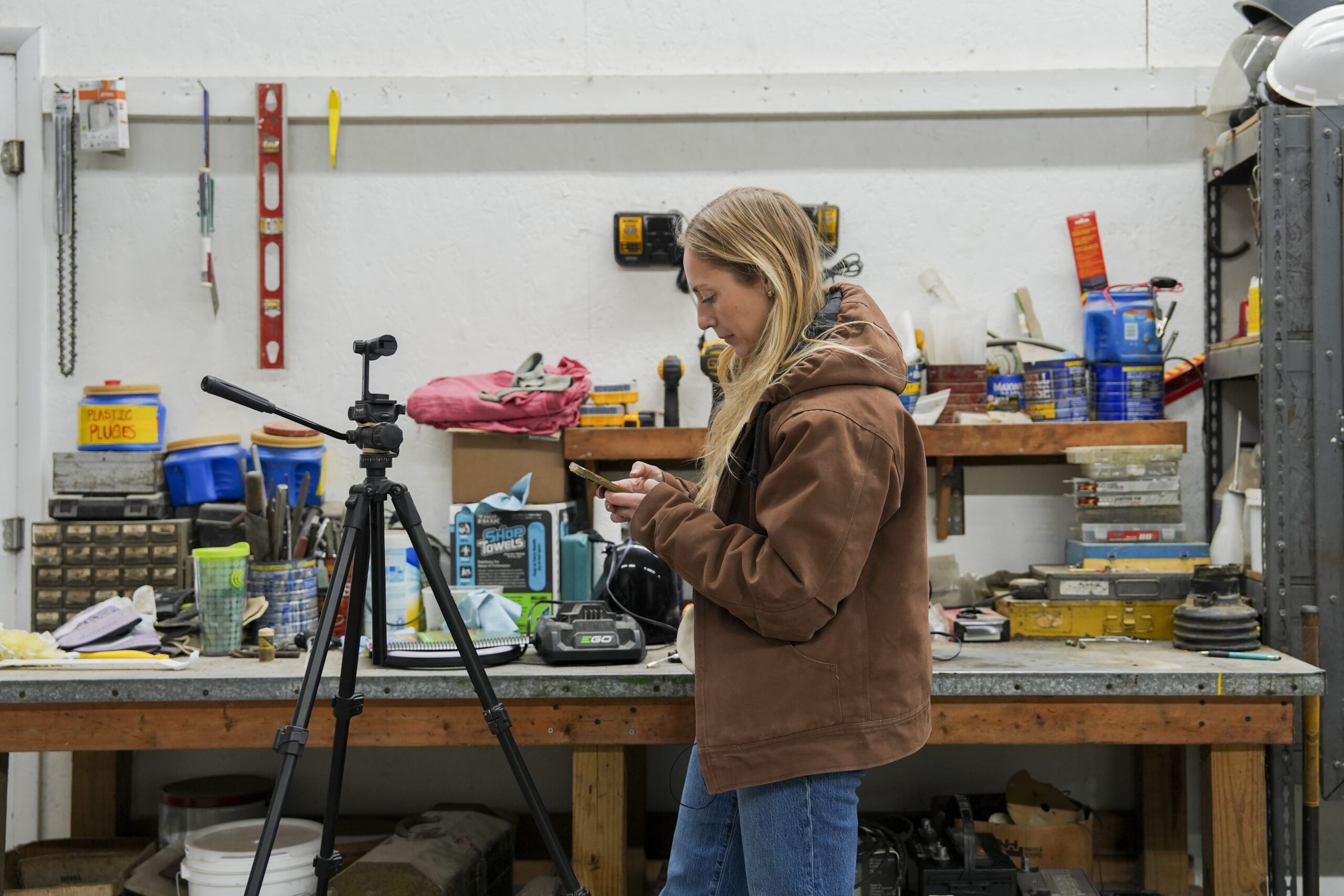Photography is "magic" for awakening memories. For the first time, the Rencontres d'Arles are organizing visits dedicated to people with Alzheimer's disease and their caregivers, a form of "museum therapy" that is developing in France.
"Taking care of yourself and your illness does not necessarily involve medication. Especially in this illness where there is no treatment. But we can take care of the social bond," says Faustine Viailly, a psychologist specializing in gerontology.
She regularly sees sick people who no longer dare to go to the choir for fear of forgetting the words of the songs and relatives who are afraid to let them go out. Hence the interest for her in setting up these supervised visits, because "the more adapted it is, the more we will dare to go".
This morning, it is Adrien Julliard, a 28-year-old visual artist, who is providing cultural mediation for "Wagon-bar", one of the many exhibitions of the 55th edition of this photography festival, one of the most renowned in the world, which is being held until September 29 in the south-east of France.
It traces the history of the railway meal. A niche subject but which brings back the images, smells and sounds that everyone carries from their train journeys. Like Jean who starts talking spontaneously about a recent journey with the Spanish company Renfe, sharing his surprise at having seen the bar cart still pass through the carriages.
The photo, "it's magic," smiles Nicole Guenser, vice-president of the France Alzheimer association of Bouches-du-Rhone, partner of this initiative called "Instant Sensibilities."
With Alzheimer's, immediate memory disappears, "we can't do anything about it" but we can "work on old memory", the only way to communicate in families, says Nicole.
"Seeing a photograph allows you to summon up memories, without even having to think about the image," adds Aurelie de Lanlay, deputy director of the festival.
The challenge "is not just visual memory, but also touch and taste, to talk about memories again, share a moment of exchange" and also allow a time of "calm" for the caregiver who is often in a state of exhaustion, she adds.
Besides, that day, some couples backed out at the last minute. Too tired, too many appointments to manage.
– A calisson, awakening of emotions –
But for Jean and his wife Anne, septuagenarians who came specially from Marseille, this workshop-visit was "both fun and interesting". Like when they had to mime photos to make the group guess them. Or taste certain products - calisson, cachou, violet syrup, old vegetable chips - and associate it with an emotion, then link it all to one of the pre-selected photos of the festival.
Like this image of a kiss that one of the participants linked to chips because "it's crunchy", another to cachou, to have fresh breath before kissing.
"For me, it was important to play on synesthesia, because an image can have a sound, a taste" and "it's interesting to stimulate memory through all possible fields", explains Adrien Julliard.
"It's this moment of awakening emotions, of the senses, which is wonderful. And we hear our caregivers very often say: +wow, what a beautiful moment, it's been a long time since we've seen it like that+", confides Nathalie Martin, general delegate of the Swiss Life Foundation which has been financing this type of action for around fifteen years.
In France, the La Piscine museum in Roubaix was a pioneer and, since then, many major museums have followed.
"Without mincing words, I honestly believe that there is great progress being made" even if France is not "the best in the class", continues Nathalie Martin.
"Other European countries are much better placed in terms of inclusion in general" and "the best" are still the Canadians or the Americans with the MOMA, the Museum of Modern Art in New York, or the Montreal Museum of Fine Arts which were the pioneers, she concludes.

